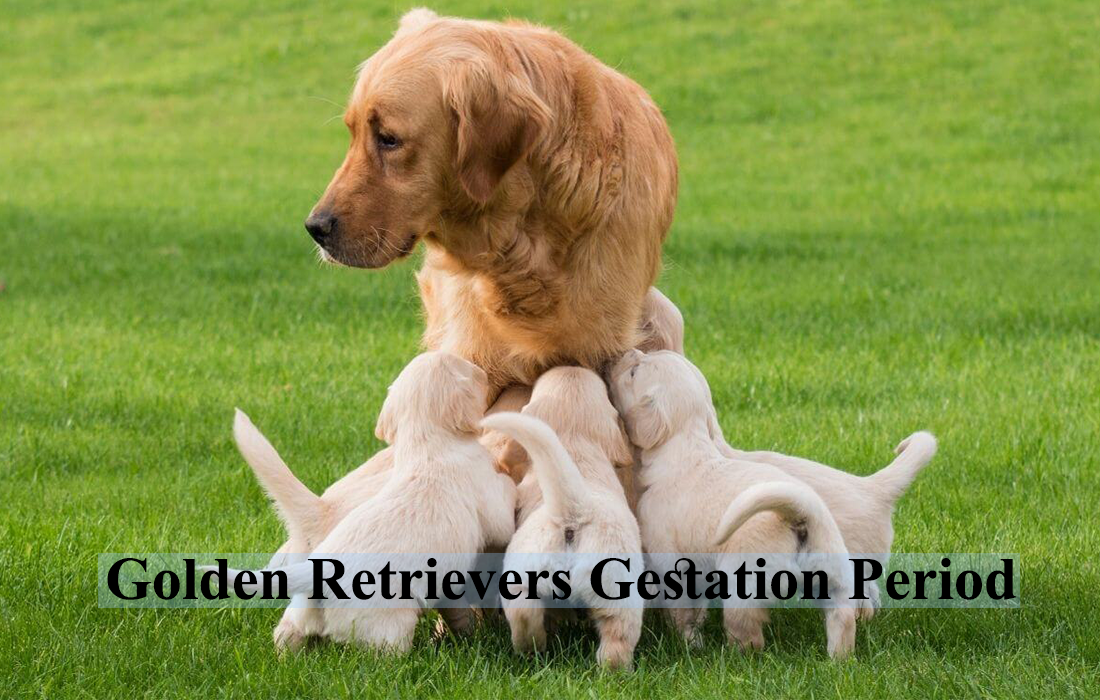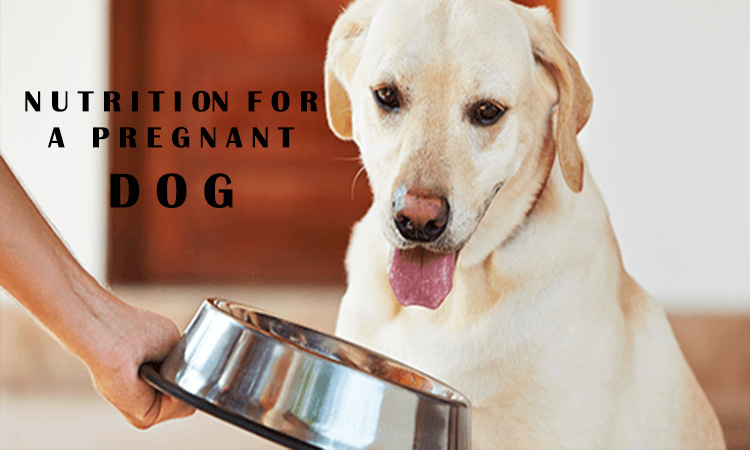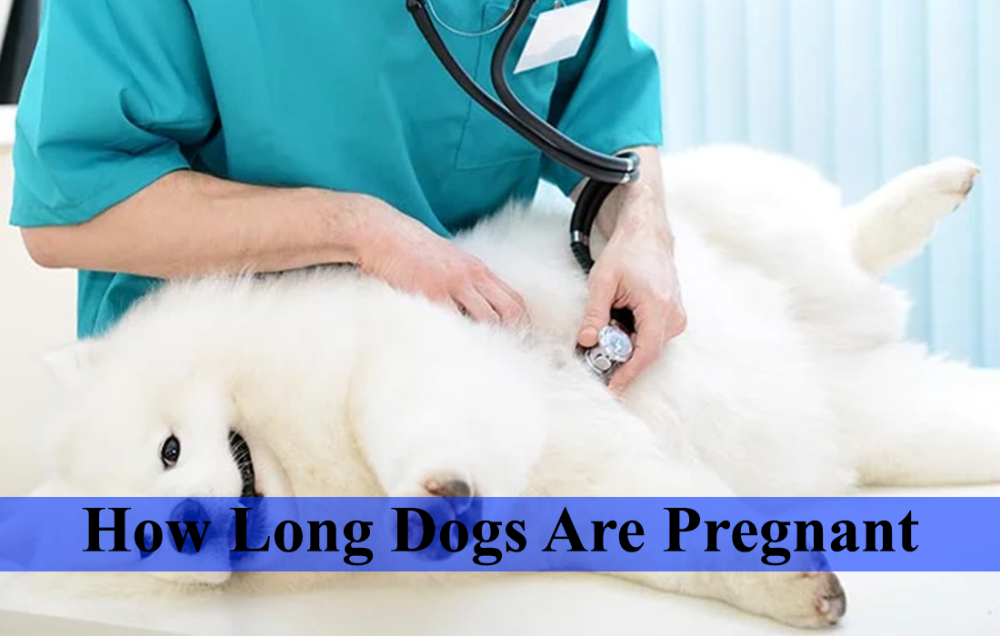Until you know what to anticipate, dog pregnancy is an exhilarating occasion but also a worrying one. What duration do dogs spend while they are pregnant?
The response to this inquiry will vary according to species, age and general health. In this article, we will provide you with everything about how long are dogs pregnant including what people usually ask for. (Refer – Other Animal Gestation Period)
How Long Are Dogs Pregnant?
On average, female dogs carry their pregnancies for around 58-63 days or around two months. However, there may be some slight variation based on breeds and individual dogs.
On the other hand, smaller breeds tend to have shorter pregnancies compared to larger ones which may last a bit longer. During this time it’s crucial that dog owners recognize when their pets become pregnant and offer proper care for the mother as well.
Factors That Affect Dog Pregnancy Length
Some factors can influence the period during which a dog is pregnant. They include:
Breeds
The breed of a dog stands out as one of the main factors that determine how long it takes to carry pregnancy. Dogs belonging to different breeds have varying gestation periods. For example, smaller breeds generally have shorter pregnancies compared to larger ones.
Age
Also, age is another factor influencing the length of time for which dogs are expected to be pregnant. Being like human beings age affects fertility as well as the ability of dogs to carry their pregnancy to term. Older dogs may find it difficult to become pregnant and are more likely to encounter problems in relation to pregnancy and delivery.
Physical condition
The health status of a dog also goes a long way in determining how long its pregnancy lasts. Trouble arises when pre-existing illnesses visit an already pregnant dog thus increasing or reducing her period while others simply do not support their physical state and hence are unable to carry without being challenged on the other hand delivery might be hard due to that they are kind of old or weak.
Different Breeds of Dogs and Their Pregnancy Period
Criteria used in classifying them can make the number of dog breeds known in the world differ. The largest international dog organization Fédération Cynologique Internationale (FCI) recognizes more than 340.
Nevertheless, other breed registries and associations like the American Kennel Club (AKC) and The Kennel Club (UK) exist which might recognize different breeds or count slightly differently due to variations in breed standards and recognition criteria. Altogether, there are approximately four hundred recognized dog breeds globally.
Here are the names of some well known dog breeds and their pregnancy period:
- Labrador Retriever – lasts for approximately 63 days
- German Shepherd – lasts for about 63 days
- Golden Retriever – approximately sixty-three days
- Bulldog – between 62 and 64 days
- Beagle – sixty three days
- French Bulldog – sixty-three days
- Poodle – it lasts for about two months.
- Rottweiler – takes up to 9 weeks
- Yorkshire Terrier – usually takes around nine weeks.
- Boxer- the span is about 9 weeks.
- Dachshund — often takes around two months.
- Siberian Husky — duration is approximately 63 days.
- Shih Tzu — gestation period: about two months.
- Great Dane — around a period of 2 months for gestation duration.
- Doberman Pinscher— usually takes an average of sixty three (63) days to breed.
- Pembroke Welsh Corgi—this breed will last sixty three (63) days
- Australian Shepherd—takes around nine weeks till delivery time comes.
- Cavalier King Charles Spaniel — Their length of gestation is about two months.
- Miniature Schnauzer — The pregnancy phase in this particular breed can last upto seven and half weeks.
- Border Collie —the term is roughly averaging at seven weeks.
Please note that these are average pregnancy periods and can vary slightly among individual dogs within each breed. It’s always best to consult with a veterinarian for specific information regarding pregnancy and breeding for any particular dog breed.
Also Read - How Long Are Cat Pregnant? Learn about Cat pregnancy period and their gestion information.

Reproductive Cycle in Dogs
The dog’s reproductive cycle is called estrous cycle. This has four stages such as proestrus, Estrus, diestrus and anestrus. It lasts for about 9 days and can characteristically be seen by vulval swelling along with bloody discharge (which sometimes attracts male dogs but is still not ready to mate).
It takes place within a period of 9 days where the female becomes fertile in readiness for mating. Diestrus which takes around 60-90 days is the post-mating stage marked either by receptivity or pregnancy if fertilization took place.
On the other hand, anestrus, lasting 4-5 months, represents a non-reproductive period characterized by dormancy of the organs of reproduction. For pet owners, it is important to know these stages especially if they do not want their bitches bred by any male dog that comes their way.
The benefits of spaying are great since it curbs excessive breeding and reduces risks of diseases like pyometra among others due to hormones released during every heat cycle or after puberty has been reached in canines—it’s simply risky not to get your dog neutered!
How Long Are Dogs in Labor?
The time spent by bitches in labor is never the same since it depends on factors such as dog size, number of puppies and individual dog health. In general, the active stage of labor may take between 6–12 hours but may lengthen to 24 hours maximum.
However, this varies a lot. Hence, when there are signs of distress or prolonged labor without progress during whelping, it is important for owners to closely monitor their dogs-when there are signs of distress or prolonged labor without progress during whelping-this is an essential aspect that the former should follow. Moreover, some bitches will have intervals between each puppy which is normal.
While this happens, others have gone into labor for more than one day with no change/addition/progress whatsoever. Meanwhile, some other dogs will be in labor for over twenty-four hours without any increment in puppies delivered at all. Given that these symptoms do not go away after an hour then one must consult with a vet immediately.
Dog Pregnancy Diagnosis
There are several techniques for diagnosing pregnancy in bitches which include palpation, ultrasonography, x-rays, hormone testing and clinical signs observation. Palpation enables the veterinarian to feel a growing fetus through the abdomen, typically successful after 28 to 35 days post-coitus.
As early as 25 to 30 days following mating, ultrasonography can confirm pregnancy by visualizing fetal heartbeats. X-ray imaging can also detect pregnancy later in gestation (about day 45-50) when fetal skeletal structures become visible. For instance, relaxin levels in the blood may be measured on their way to determining if an animal is pregnant starting from about day 21 to 25 since breeding took place.
Changes of weight gain, mammary gland enlargement, eating behavior and nesting behaviors are some of these symptoms that do indicate pregnancy too. Veterinarian consultation is essential for accurate diagnosis made throughout the period of gestation plus continuous care is required during this duration.
How Can You Tell if a Dog is Pregnant?
If you wish to determine if a dog is pregnant, there are some signs to look out for; loss of appetite, belly enlargement, breast changes, behavior alteration (nesting and increased affection), vomits and tiredness.
Although these signs may imply pregnancy, the only legitimate assurance can be found through veterinary; examinations and diagnosis tests as well for example ultrasound (sonography), palpation, hormone test and X-rays. It is important to consult a vet for accurate diagnosis and appropriate care during gestation as they will provide guidance on prenatal care, and nutrition as well as monitor possible complications.
Care and Nutrition For a Pregnant Dog
A healthy pregnant dog must be taken care of well as well as fed properly. Therefore, it is very important to provide a balanced nutritional diet that meets extra energy and nutrient requirements during pregnancy.

This is why veterinarians usually advise on feeding such dogs with high-quality commercial diets which are formulated specifically for pregnant or lactating dogs and contain all the necessary nutrients like protein, calcium, vitamins etc. required for fetal growth and milk production. Regular small meal feeding can help relieve discomfort caused by an enlarged abdomen as well as reduce risks associated with pregnancy-related sicknesses.
Ensure that the water given is fresh and clean because proper hydration is of great importance also for those periods of time when the dog will be dehydrated. It’s important to visit a veterinary clinic for check-ups regularly so as to keep monitoring the dog’s health, weight gain and course of pregnancy.
Also, prepare a quiet comfortable place where your pet will stay before delivery and provide many things to do and think over that contribute to the general state of the mother in the laboring dogs. Engaging professional advice from a vet in both situations ensures personalized attention aimed at addressing specific needs at stages of gestation thus ensuring both puppies’ healthiness¸ his/her wellness too.
Also Check - Rabbit Gestation Period and their pregnancy diet with complete information.
FAQ
What is the length of pregnancy in dogs?
However, it can be anywhere between 58 and 68 days. The average time of gestation in dogs is 63 days but there are times when some may go into labor a few days before or after.
Which aspects determine how long a dog is pregnant?
Several factors can affect the period of a dog’s pregnancy. Small breeds tend to take less time compared to their larger counterparts in whelping. These may also depend on the number of pups being carried by the mother as bigger litters require more time for proper development. Further, personal health conditions such as age and general well-being can be another contributing factor.
Can small dogs be expected to carry their young longer than big dog breeds do?
It has been noticed that generally small-sized dogs have shorter gestation periods while slightly longer ones may be seen in bigger breeds. This divergence arises from differences in pregnancies among different races with regard to the numbers and sizes of puppies carried.
Are there any particularities about dogs’ pregnancy health concerns or risks?
Some health concerns and risks are associated with pregnancies in dogs even though it is a natural process. Gestational diabetes, eclampsia (low blood calcium levels), and labor-related complications are potential hazards. It is necessary to observe the pregnant dog keenly for any signs of trouble or complications and consult the veterinarian when need be.
How can I prepare my home for the arrival of newborn puppies?
You should establish a conducive atmosphere in your house before new puppies come. Such ambiance should be comfortable and safe both for the mother of the puppies and its offspring. This includes preparing a whelping box filled with clean bedding where she can nest quietly and give birth undisturbed. The required supplies include towels, heating pads if temperatures should dip below 85F, as well as a thermometer so that you can check on how warm it is within this area. The room has to be warm, well ventilated without draughts.
Conclusion
Being aware of how long a dog’s pregnancy period is, is just part of the package. On average, dogs are pregnant for about 58-63 days but this may vary depending on issues such as breed type, size and condition at that moment. Smaller breeds tend to get through their pregnancies faster than bigger ones would go.
During pregnancy supplying the mother with proper care and nutrition is necessary. Regular veterinary checkups, a balanced diet and comfortable surroundings are key components in prenatal care for dogs. To ensure a smooth healthy gestation period for their pets, pet owners should remain informed and seek professional advice

